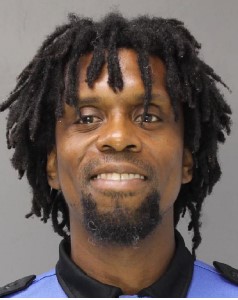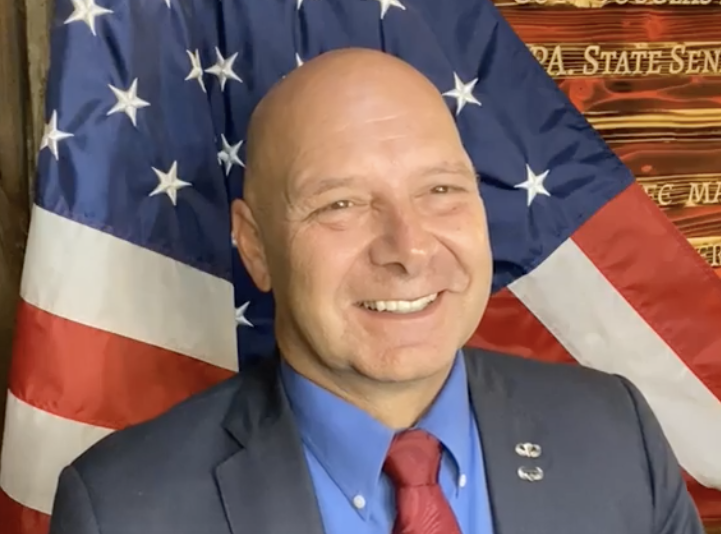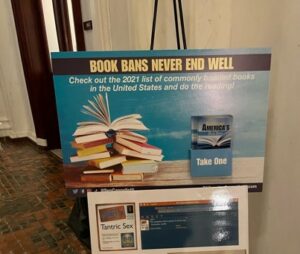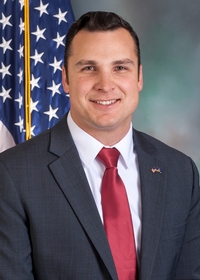North Penn Parents Plan Protest After Trans Student Attacks, Injures 12-Year-Old Girl

Parents with children in the North Penn School District plan to protest Tuesday over the beating of a 7th-grade girl in the Pennbrook Middle School cafeteria last Wednesday by a transgender student—an incident that students had warned their guidance counselor about hours before.
Despite the warnings, the district failed to prevent the attacker from striking the 12-year-old victim in the head repeatedly with a Stanley tumbler. The victim was taken to the hospital, received staples to close her head wounds, and is now recovering at home, according to police.
Initial media accounts ignored that the attacker, 13, is a biological male who identifies and dresses as a girl.
“My friends and I went to the guidance counselor to say I was on the hit list, knowing something was going to happen. There was a girl. She was targeting us every day at lunch. And they were going to the counselor and tell them every day that this is going to happen,” a 7th-grade girl told the school board at a heated meeting Thursday evening. She said the attacker yelled, “I’m going to murder you!”
That morning, guidance counselor Colleen Frattori told her, “Don’t worry about it. It’s not going to happen.”
“I was at lunch, and all of a sudden, I heard screaming and everybody running. I see [the attacker] running in. The girl who got attacked didn’t see [the attacker]; she was faced backward, and you just hear these terrible loud bangs of the Stanley bouncing off her head. And then you see [the attacker] grabbing her hair and hitting her against the table. And just repeatedly hitting her with the Stanley. There was blood going everywhere.”
The father of the girl who spoke, Chris Pekula, noted school officials told them the students were locked in the cafeteria for eight minutes, but it was actually 28 minutes.
“Many kids have said they know exactly. They looked at their phones. Why were kids told they weren’t allowed to call their parents? Text their parents? Why were kids left in the room where this incident occurred while they were cleaning the blood off the floor? My daughter calls me crying hysterically while they’re cleaning blood off the floor. One of my good friends lost her daughter at Sandy Hook. I attended those funerals, so when my daughter calls me, saying there’s blood everywhere, it scares me.
“My question’s hard. My daughter went to counselors at 9 a.m. Twice. And told them this attack was coming today at lunch. It was known. She was number two on this girl’s hit list. There was a written hit list, this girl and her best friend…it was well-known this hit list. There were three girls on that hit list. My daughter was number two on that hit list. So what happened from the time you and your district got the warning this attack was coming to when the attack happened?”
Another parent, Stephanie Palovcak, said teachers told students not to call their parents or to hang up the phone. Her daughter had called her, and she heard the words “tons of blood” and kids screaming and crying.
“I would like to be assured this child will not be returning to any North Penn School,” said Palovcak.
Alyssa Santiago said, “My daughter was number one on that hit list. I called the school on two separate occasions on Tuesday and Wednesday to inform them of this child who was going to curb-stomp my daughter or make my daughter bite the curb. And I was assured my daughter was safe. And I was assured it was handled and taken care of. I wasn’t called. I was followed up with a generic email saying, ‘The student you mentioned was talked to today. If you have any other concerns or questions, please reach out.’
“Her friend got information that she and my daughter were going to be brutally attacked, and nothing was done,” said Santiago. “Nothing. Where are the answers?”
She told Superintendent Todd Bauer, Ed.D., “The victim’s father was told that you were unaware that this child was a threat. How was that possible when I made a phone call to let them know my child was being victimized?”
Shannon Main told DVJournal that her daughter had been the attacker’s classmate at Pennfield Middle School before that student was transferred to Pennbrook.
Her daughter was afraid of the student and asked Main to pick her up so she would not have to go to gym class with her.
“He hasn’t been in my daughter’s school for weeks now,” said Main, who assumed the student was getting mental health treatment at another facility.
“But someone at North Penn decided and made the call to put him in Pennbrook, a different middle school within the district.”
She said boys who identify as girls are permitted to use the girls’ locker rooms and restrooms in the district.
“My daughter was afraid to go to the bathroom,” said Main. Her daughter would sometimes go to the nurse’s office to use the facilities or wait until she got home “because she wanted to avoid the bathroom he was in…A lot of the girls don’t go to the bathroom all day.”
“There were multiple signs this kid had problems,” Main added. “If you’re saying you knew nothing about this kid’s behavior, well, then there’s something wrong in the school system.”
Parent Ariel Baker-Evans told the school board that the attacker was at Pennfield.
“My daughter was verbally threatened,” she said. “We were told teachers’ hands were tied… It’s hard to pray over your children when you’re sending them off to school, praying that they will come home.”
“I don’t know what is wrong. This child needs help…It could have been worse. The kids were traumatized just by watching what happened,” she said.
At the meeting, Bauer said he was “appalled.”
“You expect better. We expect better, and certainly I do,” he said. On Saturday, he posted a note on the district’s website, saying there would be an independent investigation into what occurred.
That’s not enough for the Montgomery County Republican Committee. The group accused board members of slow-walking the investigation because it didn’t fit their agenda.
“At the board meeting following the attack, the community wanted answers regarding student safety; questions like the enrollment status of the assailant and the process of analyzing threats,” said the group. “The school board members (only half of which attended), hiding behind their solicitor, responded with ‘no comment.’”
An update will be provided at the Safe Schools Committee meeting on April 29 at 5:45 p.m. The parents’ protest is set for 9 a.m. on April 23 at the administration building, 401 East Hancock, Lansdale.
Please follow DVJournal on social media: Twitter@DVJournal or Facebook.com/DelawareValleyJournal














